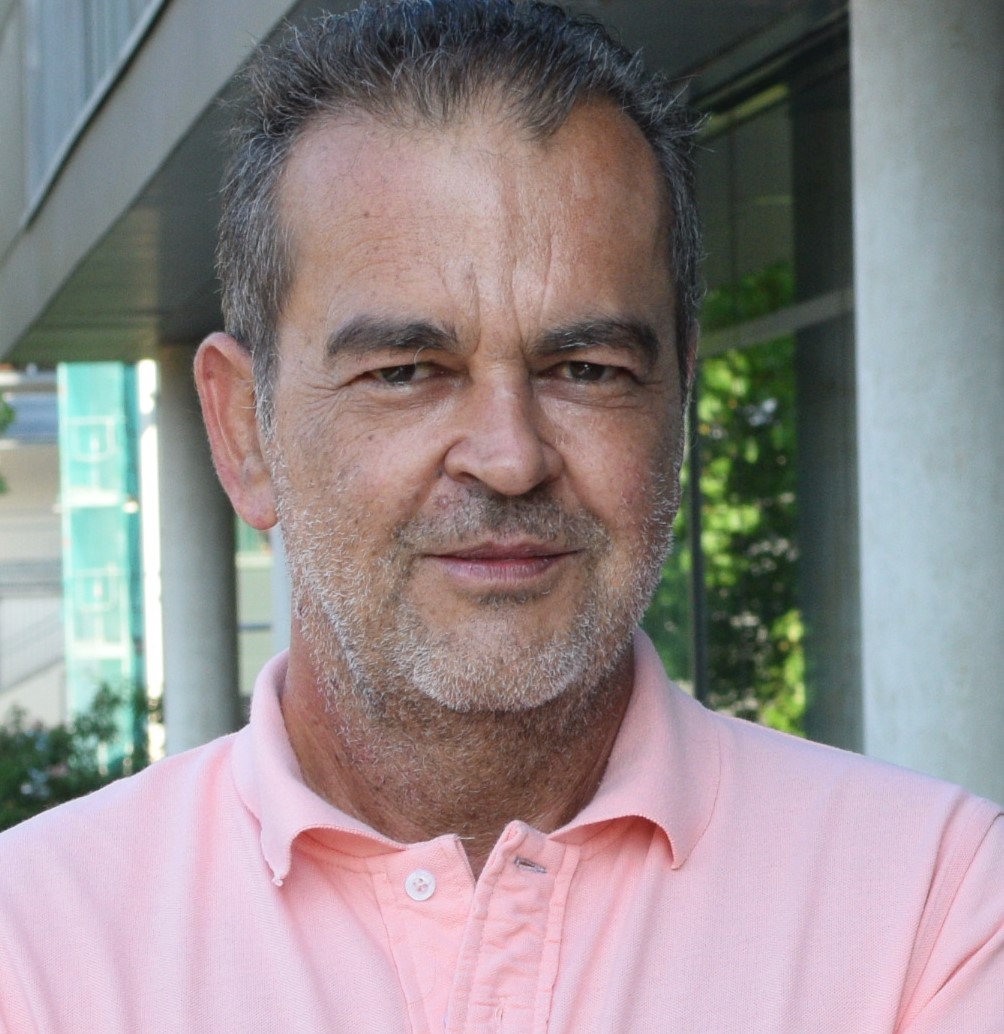
Who’s Who: Charis Demoulias
- 11:00AM May 22, 2019
- Comments off
Although the project (and its coordination) consumes almost all my energy, I do not feel tired because it is not just “another” job for me. I enjoy every moment of it in the same way a kid enjoys playing with its beloved toy all day.
In today’s Who’s Who, we talked with Charis Demoulias of the Aristotle University of Thessaloniki, wo is the project coordinator of EASY-RES, about his work package, renewable energy and his role within the EASY-RES project. We explored his motivations and gained insight into his work. This is the first interview in an upcoming series where we will talk with the leaders of all work packages (WPs) about their work.
Tell us about yourself!
I was born raised in a village in Greece in 1961. Being close to a beach, I learned to love the sea, the sun and the watermelons. I still remember the 60’s, where I had to do my homework under the light of oil lamps many nights because of frequent power interruptions. The power grid was very unstable in my village as it was still in its infancy. This experience motivated me to study Electrical Engineering. I graduated in 1984 and did my Ph.D. researching on the integration of wind generators in weak power grids where I used one of the numerous Greek islands as a test case. Then, after my military service, I co-founded Alteren S.A (Alternative Energies) and spent ten creative years on consulting and constructing PV systems, industrial energy saving and power quality projects. In 2003, I joined the Aristotle University of Thessaloniki as a lecturer. I am currently appointed there as Associate Professor. I supervised the Ph.Ds of four brilliant engineers (Spyros, Kostas, Giorgos and lady Nefeli), all of whom examined the integration of renewable energy sources in the power grid. Their work was the seed for the idea of EASY-RES that encompasses my personal ambition of reaching 100% renewable energy in the power grid.
I have been sharing the last 40 years of my life with my wife, Peggy. We also have a son, Stelios, who is studying Electrical Engineering and with high ambitions at that.
You are currently working on the project EASY-RES: What are the most important goals of EASY-RES?
EASY-RES aims to make the Distributed Renewable Energy Sources (DRES) offer to the distribution grid not only renewable energy (which is the current status) but also additional services named Ancillary Services (AS). The goal ist to make the grid stable and resilient even when the only sources are the DRES, for example even when the large conventional synchronous generators driven by fuel-burning plants are withdrawn.
Additionally, we want DRES to offer these ancillary services within the distribution grids in order to enable the large penetration of DRES without requiring additional investments from the grid operators.
EASY-RES wants to show that these AS can be offered with the price of the DRES increasing only slightly. These additional costs will be compensated by selling the ancillary services in relevant markets. This means that DRES owners, even small ones, will be able to have an additional source of income apart from just selling energy. The participation of the DRES owners in the new AS markets will transform them from passive salesmen into active players. This participation can happen on an individual level or in the context of grander schemes like AS aggregators, or Balancing Service Providers.
In the same sense, the EASY-RES approach requires more active DSOs, which interact much more frequently with the TSOs and the DRES owners.

How does WP3 contribute to the project?
WP3 deals with the protection system of distribution systems. The increase of DRES penetration within the distribution systems may interfere significantly with the existing fault-protection systems. Generally, such malfunctions can be attributed to the fact that the protection systems were designed in a time where no energy sources were present in the distribution systems. To mitigate this problem, some researchers suggest the replacement of the existing protection systems with ones that are more sophisticated.
The approach of EASY-RES is to make DRES smart enough so that they sense on their own the type of fault and how far it is from them. Based on these two parameters they will be able to react and assist in the fault-clearing process with existing means of protection. Such a feature will defer additional investments despite increasing DRES penetration.
Our first step in this direction is to develop a methodology that will allow us to evaluate the DRES hosting capacity in a distribution system based on existing protective means. The next step is to prove that the hosting capacity can be increased if the DRES exhibit the aforementioned smart reaction during faults.
What are the greatest challenges you are facing within the project at the moment?
We want to make the DRES able to provide eight new ancillary services in a controllable way. The biggest challenge is to achieve this with a unified control method while maintaining basic topology of the DRES converters.
EASY-RES started back in March 2018: What are your greatest successes that you have achieved since then?
We have already defined eight ancillary services to a significant depth. We know how they should be provided, how they should be measured and quantified and how they should be registered in order to be traded in the AS markets. In addition, we are very close to tackling our main challenge mentioned above.
EASY-RES seems to be a tough project: How do you wind down after a hard day of work?
Although the project (and its coordination) consumes almost all my energy, I do not feel tired because it is not just “another” job for me. I enjoy every moment of it in the same way a kid enjoys playing with its beloved toy all day. Although it is much more exciting for me because I get to play with five other, much younger “kids” – four of who completed their Ph.D. under my supervision!
What would you do if you did not have to work for one year?
I would suffer from depression!
Is there anything else you would like to tell our readers?
I wish for them to enjoy their lives by taking care of their health and by doing things that please them.
Thank you, Charis Demoulias, for the nice interview!
